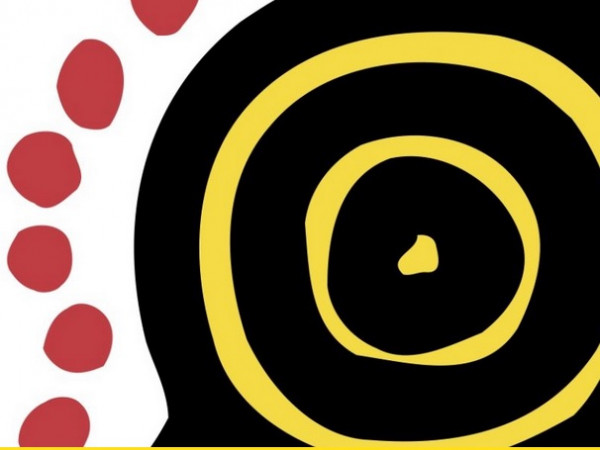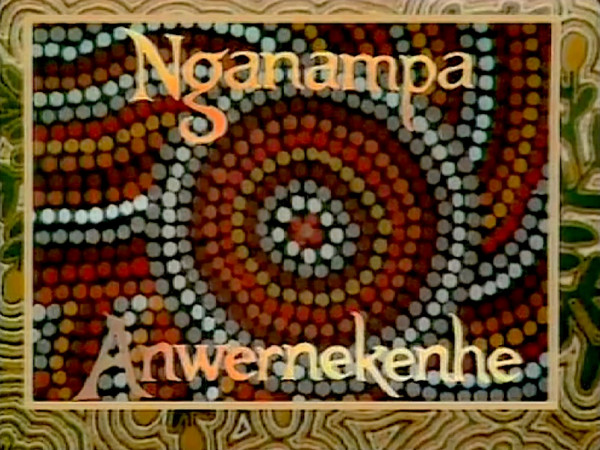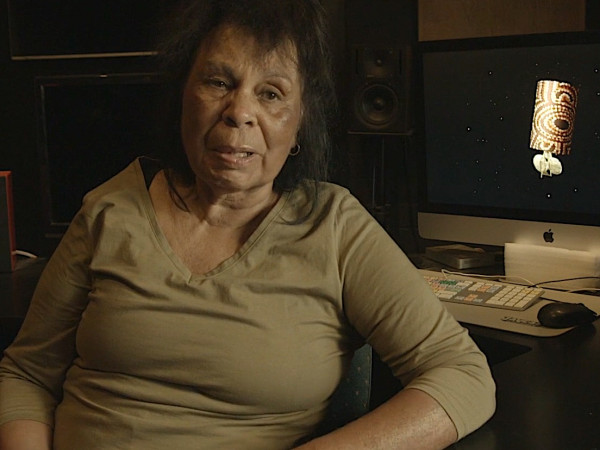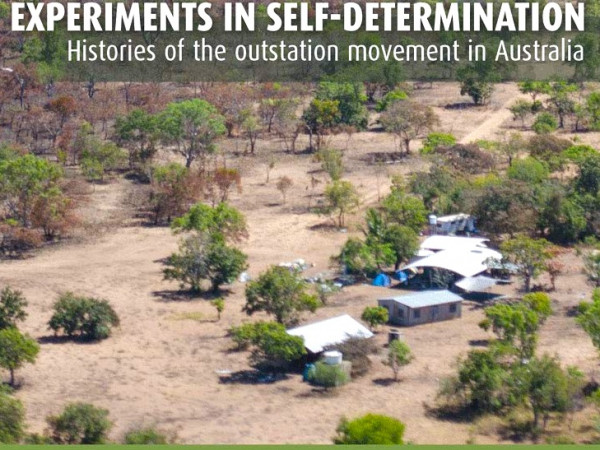Michael Liddle
“Have we got the energy to keep on going with our identity?”
I'd grown up in an Aboriginal family and lifestyle…But the identity of an Aboriginal was missing at the time of growing up. So, I got that move to CAAMA, where the knowledge aound my identity was starting to happen. And working on Nganampa …highlighted to me the importance of identity. And from…from that Nganampa, I went searching for other places and, uh, IAD. and then I went to Tennant Creek and went to bush to live. And so, from 1990 to 2020, that's 30 years ago. So, I’ve progressed more now, now 53, you know, and so my intelligence and intellectual property around identity has grown. And I've learnt so much more because I’ve touched base with, um, people … who I see as elders, senior elders in the Aboriginal community.
…as it’s…some 30 years on from the shoot, I now understand the governance and the…whole structure of society, Aboriginal society from a tjukurpa perspective, a dream time perspective: the processes, the procedures, the whole structures of why people and law is carried out in carefully managed precision to come, make an outcome. And that's…pointed into the direction by senior elders who have knowledge, and follow[ed] along by people who were just learning and learning, and learning and continually learning about Aboriginal law and its practices.
Nganampa at that point in time in my life was a great tool to showcase Aboriginal culture and language on a television screen - to show the people that there was people living like this. Digging like that, uh, hunting like this. Making tools like this. So all that shot material and sound, which is now archives, if it was to be shown now people would think ‘Jeez, that’s brilliant stuff…’, because it's now non-existent, and that’s only 30 years ago. So, when we look at 50 years ago, it was a harder life, but tools were still made. When you look at now, well, you have to really search, well, who's making these tools? What sort of talk are we leaving behind for our kids to look at us? What talk? So, the old people, from my view, are getting sneaky with their information. They no longer want to give it to people, because their view is ‘they're not clever enough to look after it or intelligent, so it's coming with me’. Gone…
Well, in the Codes 4 Life workshop that I run … our whole purpose of it is to reset the identity button. We go through ‘business’ … to carry on our knowledge about country. We don't go through business to go to jail. We don't go through business to go the pub. But this is the view of Aboriginal men now. And this is where they’re ending up. So, we have to ask ourselves: ‘Education, whitefella education? How important is it on ….for a blackfella education?’ But how can you, when you're in jail? You're lying to yourself. So, we need to start informing men. Listen, we're educating people …we need to grow kids up with this knowledge around the Western system, so we can understand how we can read and write, and then we can transfer that knowledge into learning and reading, and writing in the languages…
The technology to broadcast language, stories and lifestyles is just the best. And that's why Imparja was set up: now whether it does that as one of its core delivery services, it doesn't happen. And there's a lot of talk why it doesn't do that, but it could stimulate so much more goodness and uh, wellbeing amongst the whole community of Alice Springs and the Imparja footprint. But it doesn't get on the Aborigines stories too much. Why, I don't know - they’re wonderful stories to be told. And to further say, we run a workshop two weeks ago and we had a group of men in there, aged from about 18 to 45. Not one of them knew who Charles Perkins was, and not one, only one of them knew who Vincent Lingiari was. Now, why is that? And we said to them, these are the people that give you the freedom to go into that pub and drink. But you've abused that – you’ve bashed your wife or you've stolen the car, now you're in there. They never give you freedom to go and do that. They give you freedom, passes, equal rights to walk the streets and … uh, be accepted in the community. That sort of thing…whether technology can reinvigorate that thought, that comes with the Aborigine person sitting and finding time to do that. At the moment, they've got no time, they're got to rush up time, give money, and they're going to rush up to the bottle shop to get drunk, and watch a game of footy - things that are relevant, are important. That's the sadness.
We needed an Intervention, of some sort. We drastically need more of an intervention now - who's going to provide it? Who's going to lead it, the way they did that intervention? And just an example, they put policemen on every community more or less, in demountables. Set them up perfectly. Two years later, no more police. Three years later, no more police. Where have the policemen gone? They're no longer required. But as we're finding out, policemen are required, especially at that area where I come from. So much alcohol coming in and out, and there's only a shelter where policemen used to live when the intervention come. We had more police and government agencies flooding around the country than there are mice, ants … crawling around the country like ants. Incredible.
The Intervention’s done nothing. I can see their purpose and the thought behind it. But it was unsubstantiated. It wasn't …they went off [to] a community who had, um, some, uh, stories about sexual abuse. When they went looking for it, there was no evidence to see that happened. So, it was really…it was really not necessary to go down that line of then to implement the intervention. But had they done it properly, and spent the same amount of money and put it more or less like “we're going to improve people's lives” within a so-called calmer word than ‘intervention’, whatever it is. “Finance a better life style choice”, whatever.
We have homelands, outstations, and there's a need for them. But no one wants to live there. No, it's too much hard work, and government won't fund outstations anymore. You come to the community and then we can set this all up. Too much money. Homelands are there to provide…people looking after business on their country, to remain there. But when you got 4 tin sheds, 8 dogs, couple of old burnt-out shells of cars, water issues, plumbing issues - it's hot when it's hot and it's cold when it's cold. People don’t want to live there, no greenspace to live. We have all this climate change and things. People do not want to live on homelands anymore, unless there's some sort of economic streamline that they've already invested in. And that won't happen on that…that doesn't happen unless there's someone involved with that family who's been educated and has a work ethic to build that.
Oh look brother, 200 years - in the space of ‘67, when the referendum will come out, and I think in ‘64, when people …was drinking, sneakily drinking, so much, so much is diminished … And that's only in the spotlight like that. Fifty years is just like that [gestures with fingers together], 200 days [fingers further apart] just like that, compared to Dreamtime stories is his way back here [gestures with hands wide apart]. So it's come all that far. Strehlow came round here for the purpose to look after this business, because our people knew: “We need to get this stuff on video. We need to put it on audio, because too many blackfellas fooling around and we can't trust them”. Now, that was in the 30s. It's … almost 80 years ago or something like that. So, do I think that it's got the strength to keep moving? I definitely think it's got the strength, but have we got the manpower? Have we got the brain space? Have we got the energy to keep on going with our identity? Have we got that? Because it's so much at work and reward for it is just knowledge.




